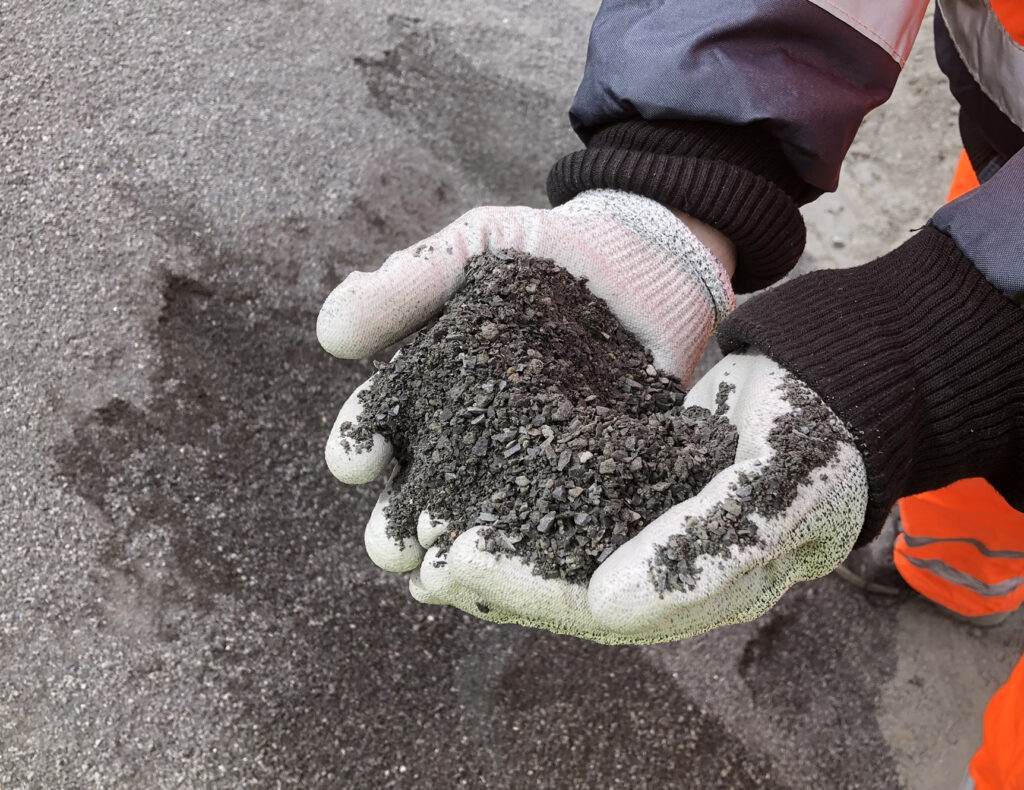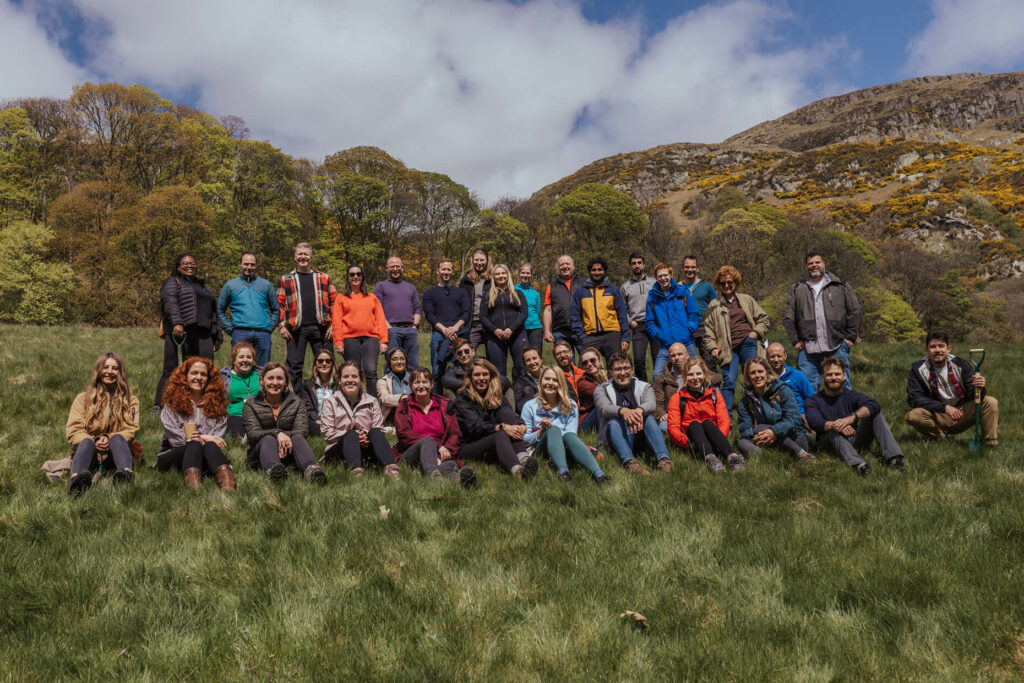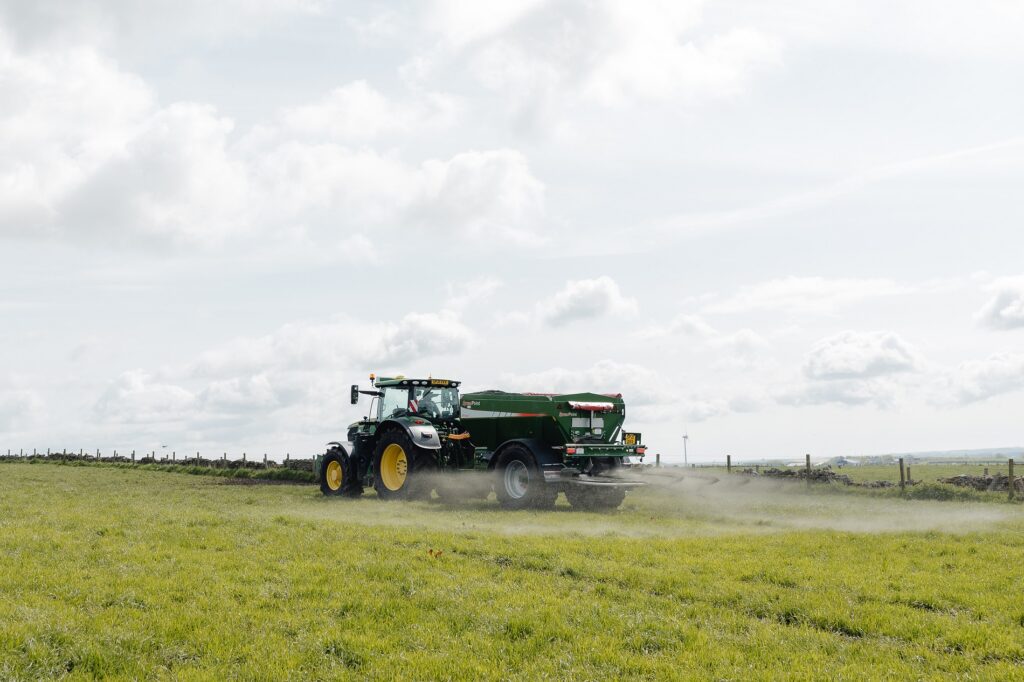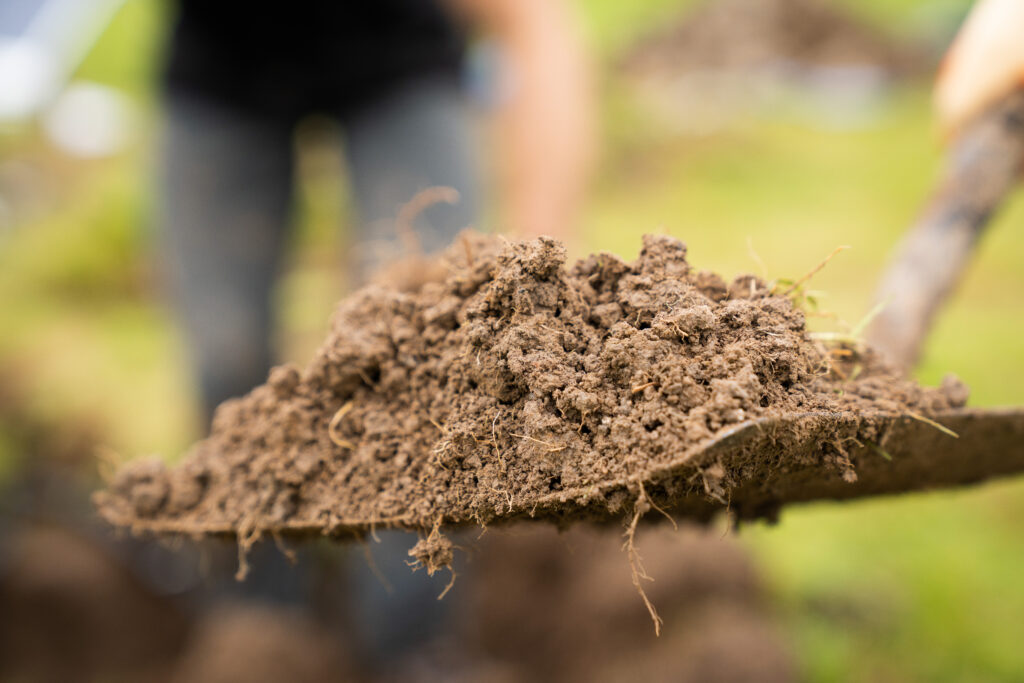Written by Jez Wardman, Agronomist at Undo
Environmental issues are often hitting the headlines but articles are generally focussed on the negative outcomes, creating worries that it’s already too late to turn things around. However, I know from experience that farmers, local communities, carbon removal companies and other climate-forward organisations are making a real difference every day, combining innovative technologies with scientific knowledge to save our planet.
UNDO is just one such company working to reverse climate change. We spread locally-sourced crushed basalt rock on agricultural land for free. Basalt has been applied to farmland for hundreds of years due to its benefits for soil fertility, soil biology, crop yield and health. But this mineral-rich volcanic rock also removes carbon dioxide from the atmosphere through a process called enhanced rock weathering (ERW).
Removing CO2 from the atmosphere is essential to reversing global warming. Even if every country in the world stopped emitting carbon, it will not change the damage that has already been done, it will simply stop it getting progressively worse. Removing carbon by locking up CO2 as well as reducing our emissions is the only way to reverse climate change.
How does UNDO remove carbon?
We’re harnessing the power of nature for a greener future. The geological process of rock weathering removes 1 billion tonnes of CO₂ every year. As rain falls through the atmosphere it combines with CO₂ to form carbonic acid. When this dilute acid lands on our soils, the CO₂ mineralises and is safely stored as solid carbon.
We speed up what nature’s been doing for millennia by spreading crushed silicate rocks such as basalt on agricultural land. By increasing the rock’s surface area, CO₂ is captured approximately 50,000 times faster than in the natural world. Unlike tree planting, carbon is locked away for 100,000+ years and once the carbon has been removed, this cannot be reversed. Our mission is to spread enough rock by 2025 to permanently remove 1 million tonnes of CO₂.
Basalt is a nutrient-rich volcanic rock that forms when molten lava cools. We source it as a natural, excess product of the quarrying industry so there is no additional energy used to produce it. Another advantage of basalt rock is that it is the most abundant rock on earth allowing for scalability of operations.

The University of Sheffield has claimed that adding crushed basalt agricultural soils in the UK “could absorb up to 45% of the atmospheric carbon dioxide needed to reach net-zero…[it] could remove between 6-30 million tonnes of carbon dioxide from the atmosphere annually by 2050.”
To achieve our ambitious carbon-removal target we actively work in partnership with farmers whose focus is on protecting their land now and for future generations.
How does UNDO work with farmers?
Our basalt is given to farmers for free, increasing profits for rural farming communities. We work with local contractors to spread the basalt rock on farmland using existing spreading machinery. We test the rock to ensure that it is always safe to be spread on land used for crops and grazing as well as in certified organic farming systems.
To keep the carbon footprint of the operation as low as possible, we currently only work in local areas close to where suitable rock can be sourced. Currently, we operate in Scotland and Northern England where the main deposits in the UK are located. We will expand as new sources of basalt rock are identified.
Another exciting benefit of basalt rock is that it acts as a natural soil enhancer, helping farmers keep their soil healthy. As John Logan, a farmer from Blairmains, Scotland put it “for farmers, the benefits of UDO’s work are clear: spreading crushed basalt on our fields is good for the soil quality and good for the livestock that grazes here, which is what every farmer wants. It also means that less costly products are needed to maintain the health and pH of our soil. It’s free and easy to do as UNDO organise the spreading for us and we’re already reaping the rewards.”

Why should regenerative farmers care about enhanced rock weathering?
Reducing global warming holds its own benefits for all farmers, but regenerative farmers should be excited about ERW for many more reasons:
- Improves soil health naturally and with minimal disruption
- It’s a more permanent method of sequestering carbon than planting trees
- Easily scalable with access to large areas of land
- Repurposes an excess product from the quarrying industry
- No need for specialist equipment to spread – just use the existing lime spreaders
Overall our operations have a 95% carbon efficiency as use existing farm machinery to spread an existing product on local land. However, it’s the agronomic benefits of basalt rock that has the potential to bring even more value for the savvy farmer.
Based on independently conducted small plot trials and expansive split field studies we’re building a robust dataset to quantify these benefits. Together with leading research organisations, including James Hutton Institute, SRUC, Scottish Agronomy and Newcastle University we’re working to investigate the increase in soil pH, improved nutrient availability, and crop yield. We’re working in eight different crops, from cereals and oilseeds to potatoes and grassland. Across these 324 plots in 23 trials, we’ve collected 814 soil and tissue samples to date with thousands more on the horizon.

How does spreading basalt rock on agricultural land benefit soil health?
The effect of soil pH on nutrient availability is well known. If soil is too acidic, nutrients will become less available to growing crops. To get the most out of any fertiliser inputs, getting soil pH right is the first thing to do. Currently, farmers apply lime to manage soil pH, but we believe basalt rock may be a credible and perhaps even preferable alternative.
Weathering is a slow process so rather than having an immediate effect that raises soil pH it seems that applying basalt will help to stabilise the soil pH and help to stop it slowly drifting down over time. After applying basalt, the advice is to routinely test the soil pH before deciding if liming is needed. It is likely that either less lime will be required to bring the pH back to target or that liming is required less frequently. It may also be the case that following repeat applications every 3-4 years, the soil pH becomes stabilised and lime is not required. The strategy needs to change to be one of long-term maintenance of soil pH, rather than short-term correction, but spreading basalt every year will likely stabilise soil pH eliminating the need for a liming agent. As we provide basalt rock free of charge and cover the cost of spreading it using local contractors, farmers will certainly save money as well as resources.
By maintaining the soil pH at target there is an improvement in the availability of a wide range of nutrients and micronutrients, benefiting both growing plants and soil microbial activity too.
This mineral-rich volcanic rock also acts as a source of nutrients for your soil. It contains a wide range of nutrients and minerals including potassium, calcium and magnesium together with micronutrients copper, zinc, iron, manganese and molybdenum in addition to cobalt, selenium and sodium which are important for animal nutrition. As the rock slowly breaks down, these nutrients are passed on to the soil over several years. These nutrients are not a replacement for fertiliser but are certainly a useful contribution.

At UNDO, we are exploring various areas of benefit surrounding basalt rock. One key area of focus is how it might prevent ‘hidden hunger’. Farmers often rely on fertilisers and micronutrients to fix any deficiencies in the field that may impact crop quality and yield. But by the time a nutrient deficiency is identified, a certain amount has already been lost. We are investigating the impact basalt may have in preventing this deficiency from occurring in the first place.
As an agronomist, I find enhanced rock weathering a hugely exciting new development for the agriculture industry. It not only has the potential to help reverse climate change but also provides farmers with another sustainable way to farm. It may even help farmers keep control of their costs by reducing reliance on inputs such as lime and nutrients. To be able to advise farmers, we are conducting detailed trials on farming land to explore the nutritional benefits of it.




